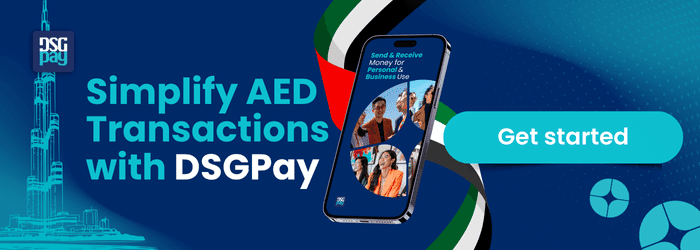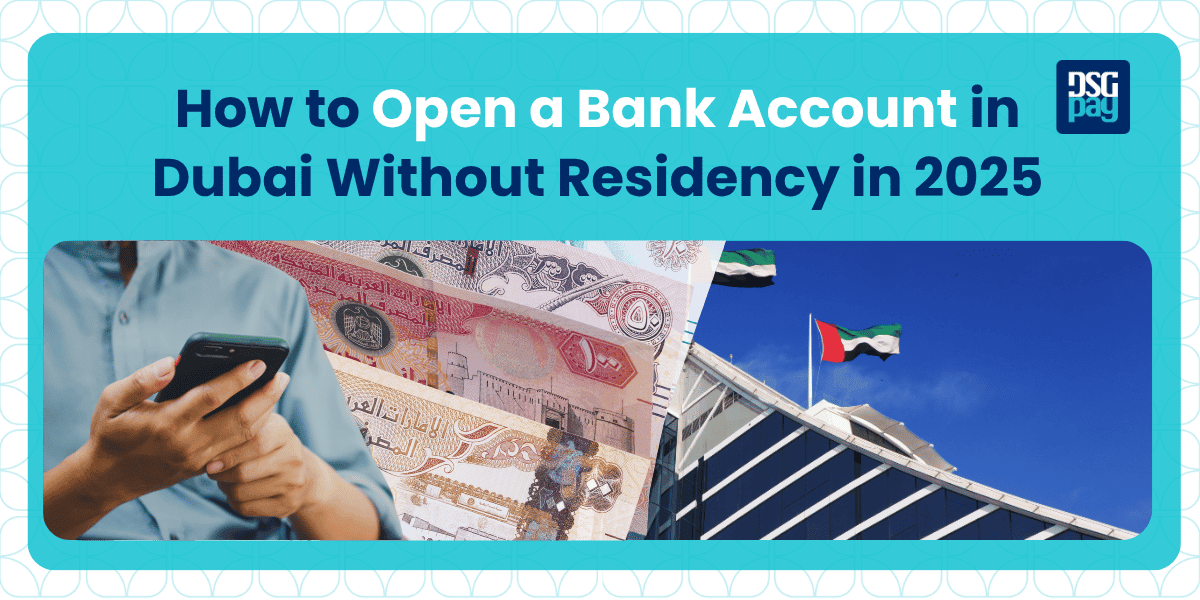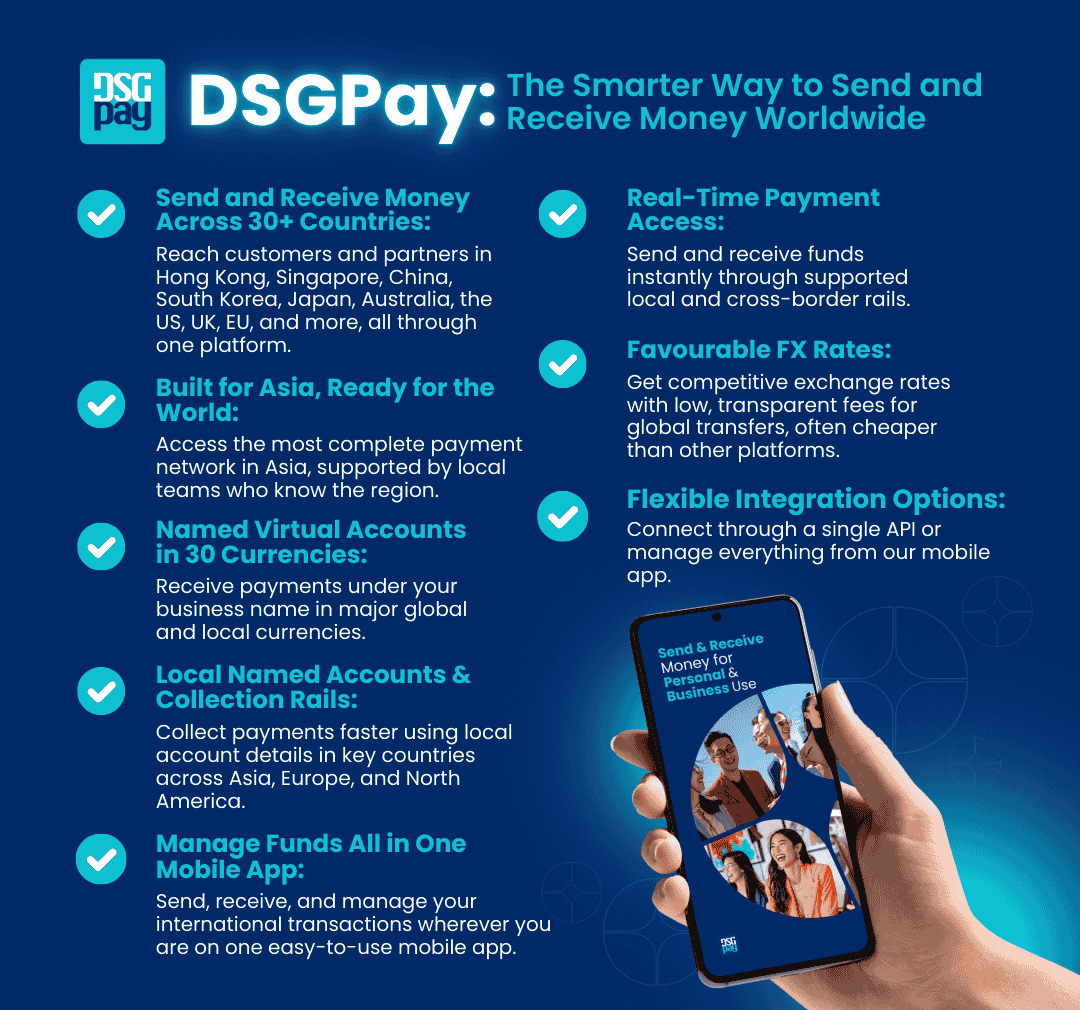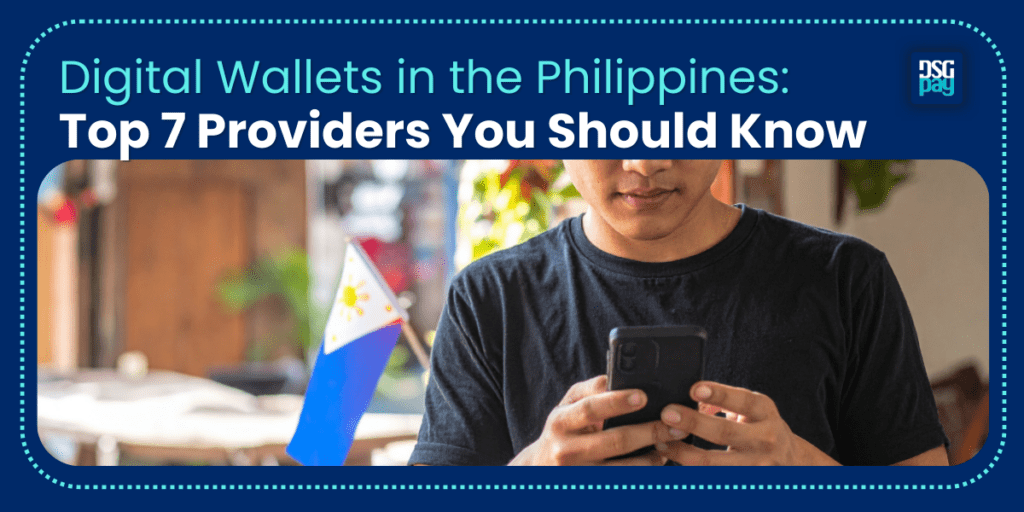Dubai currently ranks 11th in the Global Financial Centres Index (GFCI) and is the fourth-best country in the global FinTech sector.
As such, it’s not unusual to open a bank account in Dubai without residency. However, you need to go through the proper channels.
In this guide, we’ll cover how to open a bank account in Dubai without residency. We’ll also throw in tips to help you get the best deals in the market.
Table of Contents
Would It Be Possible to Open a Bank Account in Dubai Without Residency?
Yes, you can.
Due to current banking and financial laws, local banks and fintech platforms can help non-residents open a bank account in Dubai. It requires undergoing several Know Your Customer (KYC) and Anti-Money Laundering (AML) checks, among other verifications.
While residing locally or being physically present would ease the account-opening process, banks now offer options tailored specifically for non-residents, making it increasingly feasible to access Dubai’s financial services from abroad.
Several local banks and fintech platforms have simplified this process through remote onboarding and digital verifications.

Types of Bank Accounts Available for Non-Residents in Dubai
Non-residents can choose from several types of bank accounts depending on their needs:
- Personal Accounts: This account type includes a savings account or some special types of accounts designed primarily for managing daily finances and savings.
- Corporate/Business Accounts: Ideal for non-resident business owners or individuals conducting international trade.
- Offshore Accounts: These accounts provide greater privacy and flexibility for investments but are subject to specific regulatory requirements.
The UAE’s banking laws allow non-residents to open these specific types of bank accounts. However, these accounts sometimes come with certain restrictions, such as limited monthly transactions, no chequebook access, and more.
Restrictions for Non-Residents’ Bank Accounts in Dubai
While non-residents can indeed open a bank account in Dubai, there are still certain limitations these accounts can carry.
These restrictions vary by bank but generally include the following:
- Limited Account Functionality: Many banks restrict non-resident accounts to savings accounts only, meaning you may not have access to full current (checking) account capabilities or cheque books.
- Higher Minimum Balance Requirements: Non-resident accounts often require significantly higher minimum balances to maintain the account, sometimes ranging from AED 25,000 to AED 100,000. Falling below this amount may trigger maintenance or penalty fees.
- Limited Access to Credit Products: Non-residents typically cannot access loans, overdrafts, or credit cards since these products require UAE residency or local credit history.
- Delayed International Transfers: Some banks impose limits or additional verifications on international transfers from non-resident accounts to comply with anti-money laundering regulations.
- In-Person Transactions for Certain Services: Certain activities (such as changing account details or closing the account) might require you to visit a local branch in person rather than handling them online.
- Restricted Currency Options: Although many banks offer multi-currency accounts, some limit the available currencies or impose conversion fees when transacting in currencies other than AED or USD.
Despite these restrictions, non-residents can still enjoy robust digital banking features, secure deposits, and access to international financial services through Dubai’s well-regulated system.
Why These Restrictions Exist
The banks in the UAE impose stricter controls on non-resident accounts to:
- Reduce financial crime risk.
- Comply with international banking laws.
- Ensure proper identity and income verification.
These rules protect both you and the financial ecosystem, but they can make the setup and ongoing use slightly more complex.
Basic Requirements for Non-Residents to Open a Bank Account in Dubai
To open a bank account in Dubai, banks generally request the following documents:
- Completed Bank Application Form: A completed form from the bank you’ve chosen is paramount.
- Valid Passport and Visa: Your primary form of identification (with at least six months of validity) and a UAE entry stamp or visa are usually required.
- Proof of Address: This could be an international utility bill or bank statement showing your current residential address in your home country.
- Bank Reference Letter: Some banks ask for a reference from your existing bank to confirm credibility. It could be in the form of a letter introducing you to the foreign bank.
- Proof of Income or Employment: This could include a salary slip, tax certificate, or company registration documents.
- Minimum Deposit: Banks view non-resident accounts as higher risk, so there are higher demands on the required minimum deposits. Deposits can range from AED 3,000 to AED 10,000, depending on the bank and account type.
- Optional Documents: Some banks can use an Emirates ID or a Residency Visa to open a full checking account.
Depending on the bank policies or for verification purposes, other documents may be requested, or you may be required to make an appearance at the bank’s local branch.
Best Banks to Open an Account Without Residency in Dubai
Several banks in Dubai cater to foreign clients, investors, and entrepreneurs.
Below are some of the most accessible and reliable options for 2025:
1. Emirates NBD
This is one of the largest banking groups in the Middle East, and it has a significant retail presence. Emirates NBD resulted from the merger of the National Bank of Dubai and Emirates Bank International.
Best Known For: An extensive network, a wide range of services for personal and business customers, and strong digital platforms.
Can You Open an Account Online With Emirates?
Yes, you can through the bank’s mobile app. However, non-residents may need to complete a KYC requirement using facial recognition or a video call to finalise the account opening process.
Requirements to Open a Non-resident Account:
- Passport or Emirates ID (if residency is in progress)
- For employed individuals, any of the following documents are required:
- Salary letter/certificate
- Employment contracts
- The last 6 months’ bank statement
- For self-employed individuals, both documents below are required:
- Trade licence
- Last 6 months’ bank statement
- For unemployed individuals
- Proof of a source of income/funds.
- Two months of utility bills that show a normal range of consumption at the time of billing. Bill should not be more than 3 months old.
2. Mashreq Bank
Mashreq Bank was incorporated in 1967 and is a highly established bank in the UAE. It has a strong reputation for embracing digital transformation and innovation.
Best Known For: Its digital innovation and adoption abilities. Mashreq Bank is a leader in digital banking, offering quick, nearly all-online account opening options. (e.g., Mashreq Neo) and advanced digital tools.
Can You Open an Account Online With Mashreq Bank?
Yes, a non-resident can open 4 types of accounts with the Mashreq Bank. They are the savings, current, Masreq Al Islami Neo, and non-resident Egyptian accounts.
Requirements to Open a Non-resident Account:
- Valid Passport.
- 2-month bank statement from your country of residence.
3. RAKBANK
RAKBANK is a dynamic, customer-focused bank that shifted its focus heavily towards retail banking and services for small-to-medium enterprises (SMEs).
Best Known For: Being accessible, having relatively lower minimum balance requirements on some accounts, and a strong focus on retail and SME customers.
Can You Open an Account Online With RAKBANK?
Yes, RAYBANK allows non-residents to apply for a savings account online via its website, after which the process is managed by a relationship manager. However, the completion of the process often requires a visit to the UAE or an appointment with a representative.
Requirements to Open a Non-resident Account:
- Original Passport for validation.
- Proof of residential address, e.g., a utility bill not older than 3 months.
- Source of income documentation, e.g., recent bank statements from the country of residence/origin.
- 2-month bank statement from your country of residence.
4. HSBC Middle East
HSBC Middle East is the regional branch of the global HSBC Group. It provides a strong gateway for international services and multi-currency banking.
Best Known For: Their global and international banking services. It is preferred by expats and multinational corporations for its worldwide network, multi-currency accounts, and global transfer facilities.
Can You Open an Account Online With HSBC Middle East?
Yes, if you’re an existing HSBC Global Private Banking or Premier customer in another country. With that account, they can open a non-resident account in the UAE online or via their international banking centre. New-to-bank non-residents may have a more complex process or may be required to visit the bank.
Requirements to Open a Non-resident Account:
- Valid Passport and Proof of ID (e.g., National ID or Passport)
- Proof of Address (e.g., bank statement or utility bill)
- Proof of employment, income, and tax details and documents.
- Non-resident accounts are typically only for their premium tiers (e.g., HSBC Premier) and may require a minimum deposit or a high total relationship balance in the home country or the UAE.
Crucial Note: Although you can start the application online, some major UAE banks require a physical visit to a branch for a final verification. For non-residents who can’t fly into the country, setting up a fintech online payment account is a recommended option.
Best Alternatives to Opening a Bank Account in Dubai: Low Fees & Faster Process
With the number of payment platforms available, you can easily open an account in Dubai without being physically present.
These platforms provide virtual IBANs, multi-currency accounts, and global payment capabilities, ideal for freelancers, entrepreneurs, and remote businesses. These are:
1. Wise
A payment platform that provides multi-currency accounts and offers low-cost international transfers using the mid-market exchange rate.
Best Known For: Providing local bank details (e.g., US ACH, UK Sort Code, Euro IBAN) in up to 10 currencies to receive money like a local, regardless of where the business is registered or the individual is based.
Can You Open an Account Online With Wise?
Yes, the entire application is fully digital.
Requirements to Open an AED Wise Account:
- For Businesses
- Business registration documents.
- Proof of identity: Government-issued ID (e.g., passport) for all directors and owners (>25% ownership).
- Business details or bio.
- For Individuals
- Photo ID (Passport or National ID)
- Address Verification (often flexible, but you need an address to open the account).
- A small initial top-up for full features/local account details.
2. Revolut and Revolut Business
Revolut and Revolut Business’s accounts offer a full suite of individual and business features, including multi-currency accounts, expense management, and corporate cards. Revolut offers standard account features to individuals, and Revolut Business offers its features to businesses.
However, both individual and business accounts can hold and exchange AED, because it’s a supported currency for Revolut Business accounts.
Best Known For: Strong expense management, physical and virtual corporate cards, and easy integration with accounting software (Xero, QuickBooks).
Can You Open an Account Online With Revolut? Yes, for both individuals and businesses using the respective apps. But it requires operating from a supported country.
Requirements to Open an AED Revolut Account:
- Photo of an official ID (like a passport, National ID, or driver’s licence)
- A selfie photo.
- Personal details to be filled in on the app.
3. Payoneer
Payoneer is a popular global payment platform that nominally acts as a financial bridge between two platforms/parties. They primarily cater to freelancers, e-commerce sellers, and businesses who need to receive payments from global marketplaces and clients.
Best Known For: Excellent integration with major global platforms (Amazon, Upwork, eBay, Fiverr) to receive mass payouts directly. And, providing local bank account details in major currencies (USD, EUR, GBP, CAD, etc.).
Can You Open an Account Online With Payoneer?
Yes, the sign-up and initial verification process is entirely online. New users are often approved in 1-3 business days after submitting the necessary documents.
Compared to opening a bank account with a local bank, opening an account with a fintech platform offers its users more flexibility, and it takes less time to set up the account.
Requirements to Open an AED Payoneer Account:
- Passport or national ID of the applicant.
- Proof of residence (utility bill or bank statement).
- Details of a local bank account in your country of residence for withdrawing funds.
Step-by-Step: How to Open a Bank Account in Dubai Without Residency
If you’re ready to get started, here’s how the process typically goes:
- Choose your preferred provider. Either you want a traditional bank account or a fintech account.
- Gather your documents. This includes your passports, proof of address, income proof, reference letter, etc.
- Apply online or visit a branch. You either complete an online application form or visit a bank branch in person.
- Complete the required KYC and verification processes. Banks take their time for verifications, but some fintech platforms offer instant verification.
- Fund your account to activate it and start receiving or sending payments.
Final Thoughts
Today, if you’re searching for how to open a bank account in Dubai without a residence, consider online payment platforms to easily get an AED account. While traditional banks also provide non-resident bank accounts, there are often limitations that come with them.
To ensure account flexibility, fewer banking restrictions, and lower account management costs, it is recommended that you open a bank account in Dubai using an online money transfer provider.
DSGPay: An Alternative to Opening a Bank Account in Dubai
With DSGPay, non-residents looking to start a business in Dubai, or connect with Dubai’s financial hub can manage AED or multi-currency payments without opening a traditional bank account.
Open a DSGPay virtual account to collect payments in AED, send local payouts, and access over 30 currencies.

Why else should you use DSGPay?
- Named Virtual AED Accounts: Get UAE IBANs under your company’s name, so clients and partners see your brand on every transaction, building trust and simplifying reconciliation.
- Local AED Collections: Accept payments from UAE clients in their local currency through DSGPay’s domestic rails.
- No UAE Bank Account Needed: Access local AED payment capabilities without the hassle of opening a traditional bank account in Dubai.
- Fast AED Payouts: Transfer AED directly to a UAE bank account using local rails that are quicker, more reliable, and more cost-effective than international transfers.
- Multi-Currency Ready: Collect, convert, and transfer in AED or over 30 other currencies directly from one unified platform.
- API and Dashboard Integration: Automated AED collections and payout with our developer-friendly API or manage everything easily via the DSGPay dashboard.
- Digital-First Convenience: Monitor balances, send payout, and track activity anytime, anywhere with the DSGPay mobile app.
How to Set Up for a DSGPay Account
Opening a DSGPay account can be completed in minutes. Here’s how to go about it.
- Download and install the mobile app on your smart device and open it up.
- Tap on Register.
- Read the details of the Terms and Conditions, click Accept, and tap Next.
- Fill in the blanks with the appropriate details
- Click “What is this account for?”
- For personal use, click Individual.
- For business use, click SMEs.
- Check your email and enter the OTP sent to the email you provided.
- Enter your phone number > Next > Verify.
- Confirm your preferred password and verify it.
Whether you’re a freelancer in Bangladesh or a business owner in Europe, DSGPay allows you to easily open virtual account in Dubai to receive and manage your payments securely and efficiently.




